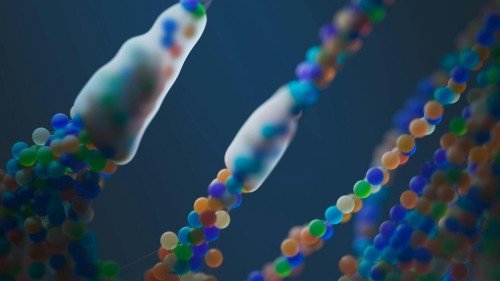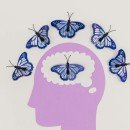
In the last two decades, genetics has gone from being a niche field studied by a handful of scientists to a driving force at the heart of modern medicine. The ability to read and interpret our DNA, the blueprint of life, has changed how we understand disease, develop treatments, and envision the future of healthcare. Today, the genetics revolution is no longer science fiction. From decoding hereditary disorders to tailoring cancer therapies, advances in DNA research are opening doors to a new era in medicine.
The Discovery of the Genome
The Human Genome Project, completed in 2003, was a turning point in biomedical history. For the first time, scientists mapped all 20,000+ genes in the human body, creating a reference guide to life itself. What once took years and billions of dollars can now be done in days at a fraction of the cost. This accessibility has democratized genetic research, enabling hospitals, universities, and startups to study DNA with unprecedented speed.
Genetics and Personalized Medicine
One of the most immediate benefits of genetic research is the rise of personalized medicine. Instead of prescribing the same medication to everyone with a condition, doctors can use a patient’s genetic profile to determine which drug will be most effective. For example, some people metabolize common painkillers differently due to genetic variations. Knowing this ahead of time allows physicians to prescribe safer and more effective alternatives. In cancer treatment, genetic markers can indicate whether a patient will respond to chemotherapy, immunotherapy, or targeted drug therapies.
Preventing Disease Before It Starts
Genetic testing has also made it possible to predict a person’s risk of developing certain diseases long before symptoms appear. By analyzing DNA, doctors can identify predispositions to conditions such as breast cancer, Alzheimer’s, or cardiovascular disease. While this knowledge can be life-changing, it also raises ethical questions about privacy, insurance discrimination, and psychological stress. Nonetheless, preventive genetics empowers individuals to make lifestyle choices and undergo screenings that could extend or even save their lives.
The Role of CRISPR and Gene Editing
Perhaps the most revolutionary breakthrough in modern genetics is CRISPR-Cas9, a powerful tool that allows scientists to cut, edit, and rewrite DNA. With CRISPR, researchers are exploring the possibility of curing genetic disorders such as sickle cell anemia, cystic fibrosis, and muscular dystrophy. Beyond medicine, CRISPR is being used in agriculture to develop disease-resistant crops and in biotechnology to engineer microbes for renewable energy. The potential is enormous, though ethical debates continue about its use in human embryos and “designer babies.”
Genetics and Rare Diseases
For decades, patients with rare diseases faced a long journey of misdiagnoses and uncertainty. Genetic sequencing has transformed this landscape by helping doctors quickly identify the exact mutation causing a condition. Although many rare diseases still lack treatments, having a genetic diagnosis allows families to find communities, clinical trials, and resources tailored to their specific challenges. It also drives research into conditions that previously received little attention.
Big Data Meets Genetics
The explosion of genetic information requires massive computational power to interpret. This is where big data and artificial intelligence come into play. Machine learning algorithms can analyze millions of genetic sequences to uncover patterns that would be impossible for humans to detect. These insights accelerate drug development, improve diagnostic tools, and expand our understanding of complex diseases like autism and schizophrenia. The partnership between genetics and data science is fueling one of the most dynamic areas of research today.
Collaboration Across Borders
Genetics research is a global effort. Scientists from around the world share data, collaborate on projects, and pool resources to tackle humanity’s biggest health challenges. However, this international collaboration is not only scientific but also digital. Just as researchers rely on genetic databases, companies in other industries rely on link building strategies to connect and share knowledge online. In many ways, global genetic research networks function like strong digital ecosystems—built on connections, trust, and shared goals that transcend national boundaries.
Ethics and Challenges
The power of genetics also comes with significant ethical responsibilities. How should genetic data be stored and protected? Should parents have the right to edit the genes of unborn children? What happens when predictive genetic testing reveals a disease for which no cure exists? These questions highlight the importance of balancing innovation with caution. Laws and regulations vary widely by country, making international cooperation and ethical frameworks crucial to guide the future of genetics.
Looking Toward the Future
The genetics revolution is still unfolding. In the coming decades, we may see widespread use of gene editing to eliminate inherited diseases, genetic therapies that regenerate damaged organs, and personalized treatments for nearly every condition. As the cost of genetic sequencing continues to fall, it could become as routine as a blood test. However, the success of this revolution will depend on ensuring that its benefits reach not only wealthy nations but also poorer regions where access to healthcare remains limited.
Conclusion
Genetics is no longer a distant scientific frontier, it is at the core of how medicine is practiced today and how it will evolve tomorrow. By unlocking the secrets of DNA, researchers are rewriting the story of human health. From prevention to treatment, the impact of the genetics revolution is profound and far-reaching. Like digital ecosystems connected through link building, the genetics community thrives on collaboration, sharing, and innovation. And while challenges remain, one truth is clear: understanding our genes is the key to shaping a healthier future for all.
Recent Posts

How Editing and Proofreading S...

How AI Tools Uncover Health Ri...

Advancing Health Science with ...

L’éthique de la recherche s...

Cómo la Investigación Cerebr...

How Big Data Is Transforming M...
Share it.
Links
© Copyright 2022 Impress-Network


